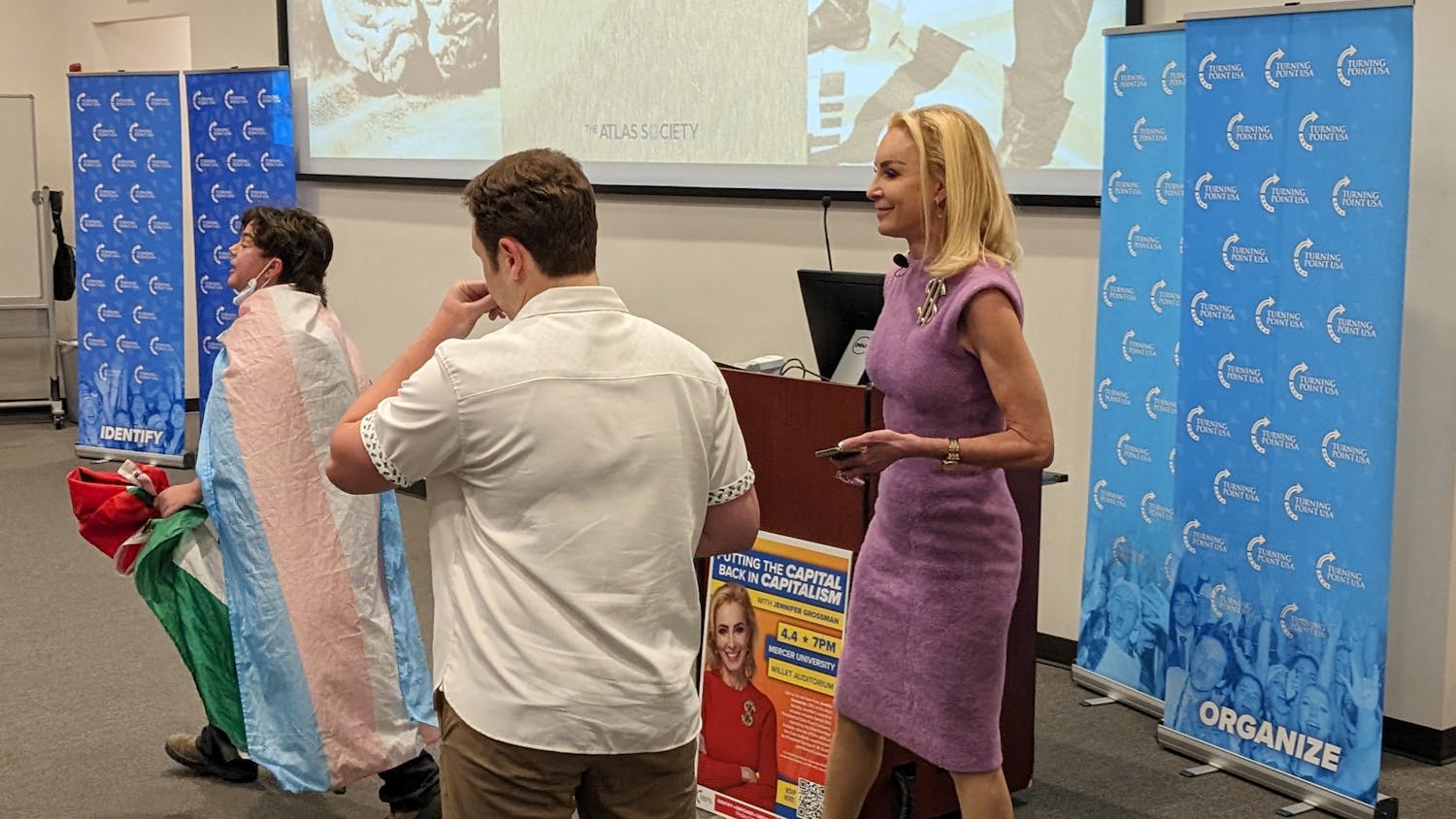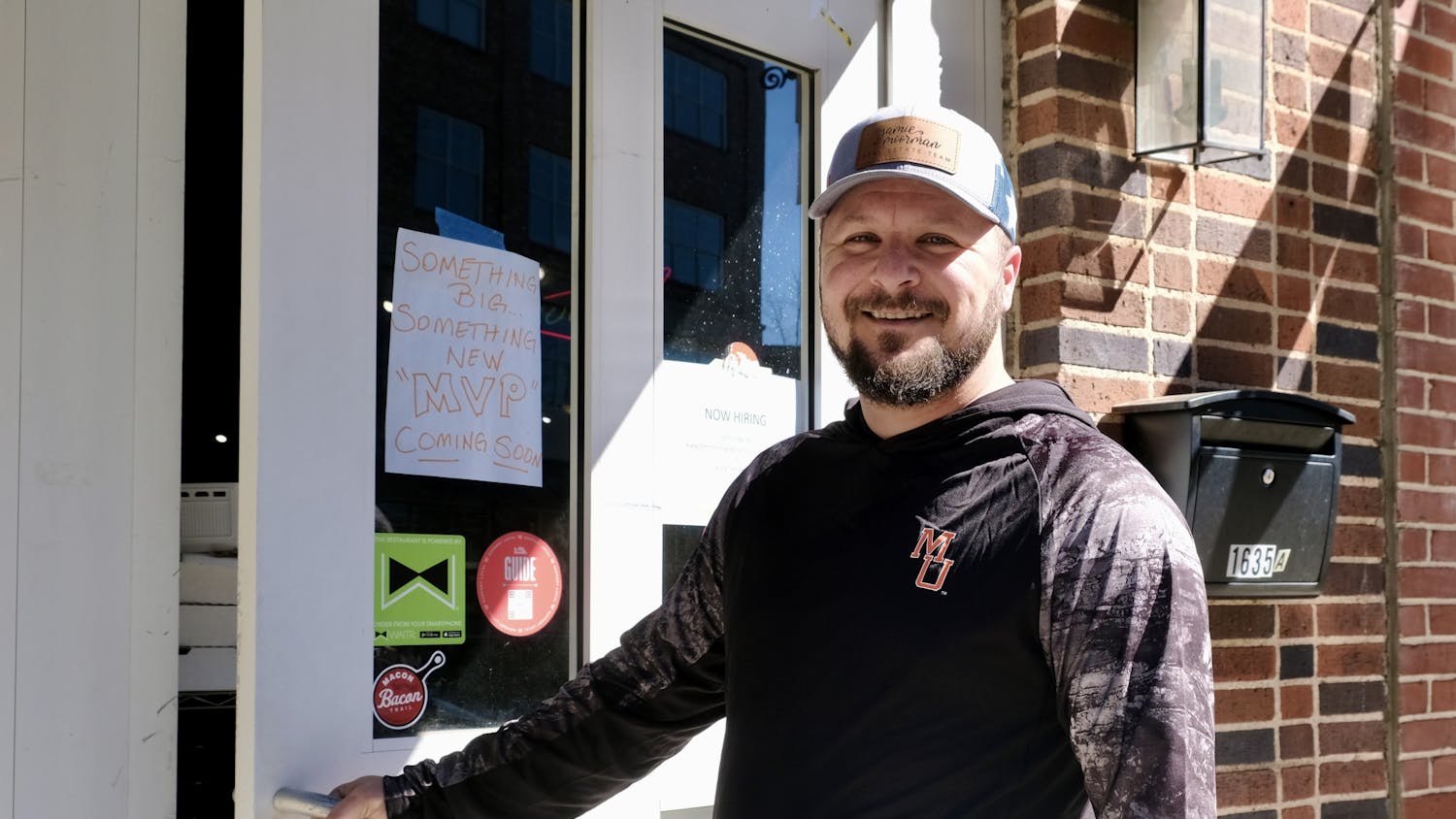In light of recent developments in the state capital, SGA President Raymond Partolan, Mercer freshman Dilan Garcia, and three other undocumented students hosted a viewing of the documentary “The Dream is Now” followed by a panel discussion in order to get students on campus more involved and politically aware of an issue that is continuing to increase in importance.
On Feb. 21, the Georgia Senate proposed Bill SB 404, a measure which would prevent DACA (Deferred Action of Childhood Arrivals) students, U Visa beneficiaries and victims of domestic violence from possessing a driver’s license. Following protests earlier in the afternoon, the Georgia Senate quietly assigned SB 404 to the Judiciary Non-Civil Committee without the bill being read on the Senate floor.
Monday also saw the approval of Senate Resolution 1031, a proposal to amend Georgia’s Constitution and declare English the state’s official language and mandate that all driver’s license exams be given in English. Outraged, undocumented students, with the help of Mercerians and other concerned Georgians, spearheaded a massive mobilization effort to thwart the bill. Calls flooded the office of senator Mullins, the Senate Rules Committee chairmen and pictures on the internet circulated blasting Coca-Cola for donating money to the sponsor of SB 404, Bill Heath, just weeks after releasing a Super Bowl ad that lauded the diversity of the United States.
On February 26 Bill SB 404 and Senate Resolution 1031 were not brought to a vote in the Rules Committee, effectively killing the legislation. Following the death of the bill, Raymond Partolan applauded the efforts of his fellow activists. “The way our democratic process works is that we, as individuals in American society, have the power to influence our lawmakers. You guys should be proud of yourselves for being a catalyst for change” said Partolan.
Despite the legislative victory, the ability of undocumented and deferred action students to attend college in the state of Georgia remains to be a frustrating and nearly impossible task.
Nina Morales, a panelist working with Freedom University, a program started by the University of Georgia professors to provide rigorous, college-level instruction to all academically qualified students regardless of their immigration status, recalled her struggle in attending college. Morales was determined to become the first of her family to obtain a college degree. She attempted to take classes at Georgia Perimeter College. However, two days before class Morales was informed that she would be charged 1,700 dollars for one class because she was charged out-of-state tuition despite having lived in Atlanta for several years. “I had only saved $2,000” said Morales.
Eduardo Samaniego, a member of the steering committee at Freedom University, told a heart-wrenching story that visibly moved several members of the audience when he spoke of his failed pursuit to attend his dream school, UGA. Samaniego grew up in Mexico working of the family farm. As he grew older however, Samaniego came to a realization. “I realized waking up at 5 a.m. to shovel manure was not what I wanted to do.” Samaniego wanted his mother to apply for a Visa in order to enter the US but it didn’t seem feasible. “My mother made 30,000 pesos or 3,000 dollars. A Visa cost nearly 7,000 and there was not guarantee I’d get it.” Dejected, Samaniego attempted suicide. Shortly after, his mother managed to acquire a Visa. Smaniego would go on to attend North Cobb High School where he was elected student body president one year after learning English. However, times were hard for Samaniego. He was homeless and changed clothes in his locker. “I had to lie about where I lived” said Samaniego. Despite all the obstacles, Eduardo graduated in the top ten of his class at North Cobb.
He paid for his mother to obtain a Visa to see his graduation. When walking across the stage, Eduardo recalled the event to be bittersweet. “Instead of receiving my diploma, I received a letter that said: Congratulations, you are banned from the University of Georgia.” Eduardo then resorted to working in fast food restaurants and other odd jobs. “I worked from 7 in the morning until 5 in the afternoon and then 5 in the afternoon until 2 in the morning. I did this for two years” said Samaniego.
Samaiego and Morales are victims of a legal discrepancy that exists between the Department of Homeland Security and the Georgia Board of Regents. According to the Board of Regents, According to the Board of Regents, any student requesting to be classified as an in-state student for tuition purposes will be required to provide verification of their lawful presence in the United States in order to be classified as an in-state student. The DHS explicitly states, “An individual who has received deferred action is authorized by the Department of Homeland Security (DHS) to be present in the United States, and is therefore considered by DHS to be lawfully present during the period deferred action is in effect.” However, DACA students like Nina are still forced to pay out-of-state tuition. Many of these students are unable to pay these exorbitant prices for higher education.
In response to these actions, DACA and undocumented students filed suit against the Board of Regents on Aug. 1 of last year. “We’re taking the issue one step at a time” said Partolan. “The case has been going through a legal back and forth. Two weeks ago, the trial was transferred to Fulton County. We should receive a new judge in two weeks.”
Raymond and the Mercer administration are also in talks about publicizing the lack of barriers that exist for DACA and undocumented student in applying here at Mercer. Partolan went on to say “Mercer has historically not proclaimed stances of social issues”. Actions, not words, dictate Mercer policy. While SB 404 was defeated, the battle for in-state tuition remains a struggle.




